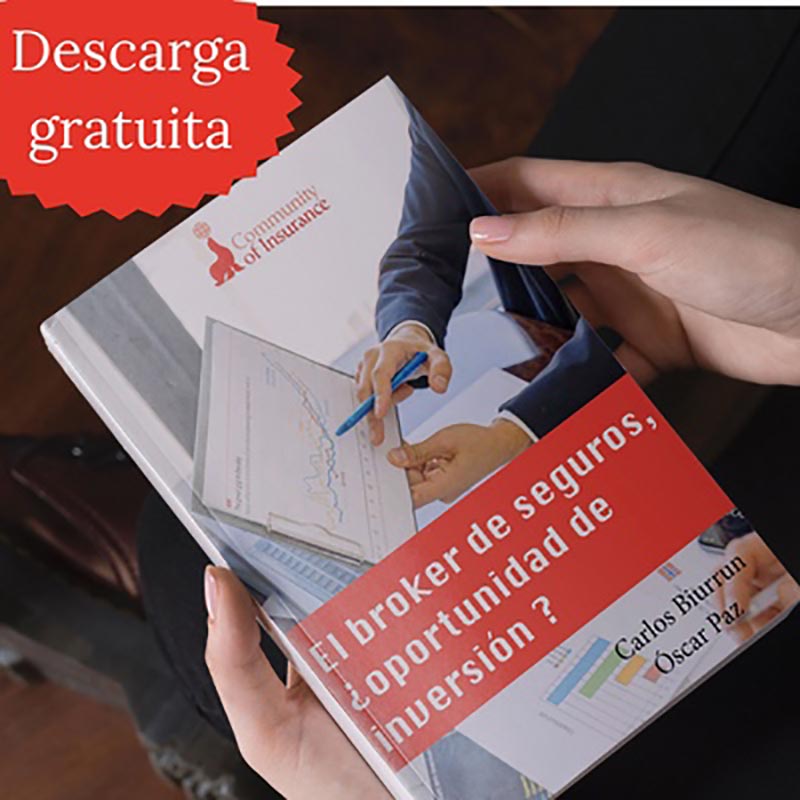 Entrevista a Carlos Ordóñez, Global Head of Digital Insurance de everis, sponsor de Insurance Challenges 2020
Entrevista a Carlos Ordóñez, Global Head of Digital Insurance de everis, sponsor de Insurance Challenges 2020
1.- SP – ¿Cuáles son los frenos estructurales a los que se enfrentan las Compañías aseguradoras en su aceleración digital y qué soluciones propone everis para superarlos?
Los principales frenos estructurales que vemos en el sector asegurador son la gran cantidad de legacy que tienen las aseguradoras y una cultura muy tradicional, lo que dificulta la adaptación de la organización hacia una transformación digital lo suficientemente ágil para los tiempos que vivimos.
Desde everis proponemos unos planes claros que permitan a la organización evolucionar su legacy pieza a pieza (priorizando en función del aporte de valor) y muy orientados a tener una arquitectura de integración y modular muy apalancada en el uso de tecnologías Cloud.
Y, además, tener un programa de transformación cultural es un pilar básico de toda transformación digital en el sector.
EN – What are the structural brakes or limitations that insurance companies face in their digital acceleration and what solutions does everis propose to overcome them?
The main structural barriers that we see in the insurance industry are the large number of legacy systems that insurers still have and the culture so traditional that they preserve even today, which makes it difficult for organizations to adapt to the digital transformation of the industry in a way that is agile enough for the times we live in.
From everis we propose clear guidelines that allow the organization to evolve its legacy system piece by piece (prioritizing according to the value contribution) and with the aim of achieving a modular integration architecture and highly leveraged in the use of Cloud technologies.
And, in addition, having a cultural transformation program is a basic pillar of any digital transformation project that is intended to be carried out in this industry.
«Lo importante es aportar valor al cliente y al propio ecosistema a partes iguales»
2.- SP – ¿En un mundo hiperconectado, como vislumbra usted la configuración de plataformas colaborativas, ecosistemas donde diferentes stakeholders contribuyan a la aceleración de la transformación digital y que beneficios pueden obtener unos y otros con esta forma de trabajar y crecer?
El cliente asegurador está demandando ecosistemas de servicios que den respuesta a sus necesidades diarias. Es por ello por lo que, cada vez más, las compañías dejan de ser competidores para ser coopetidores. Y donde lo importante es aportar valor al cliente y al propio ecosistema a partes iguales. Para ello, vemos muy necesario que las compañías aseguradoras tengan los sistemas y la cultura necesaria para integrarse con terceros, y para ofrecer una experiencia de cliente lo suficientemente atractiva para retenerlo en estos ecosistemas de servicios.
Tenemos que empezar a pensar en cómo las tecnologías PHYGITAL pueden ayudarnos a tener no solo una omnicanalidad, sino una UNIcanalidad que dé una experiencia homogénea, independientemente de dónde esté el cliente. Es importantísimo contar con una analítica avanzada en todos los canales, incluído el presencial y que nos permita ajustar tanto la oferta que se realiza como la experiencia que percibe este cliente.
EN – In a hyperconnected world, how do you envision the configuration of collaborative platforms, ecosystems where different stakeholders contribute to the acceleration of the digital transformation and what benefits can each other obtain with this way of working and growing?
Insurers’ clients are demanding service ecosystems that respond to their daily needs. That is why, increasingly, companies are no longer competitors to become cooperators. And where the most important thing is to provide value to the client and the ecosystem itself in equal parts. For this, we see that it is very necessary for insurance companies to have the technological systems and culture necessary to integrate with third parties, and to offer a customer experience attractive enough to engage them in these service ecosystems.
We have to start thinking about how PHYGITAL technologies can help us have not only an omnichannel experience, but a UNI-channel one that provides a homogeneous experience, regardless of where the customer is. It is very important to have advanced analytics in all channels, including face-to-face and that this allows us to adjust both the offer made to customers and the experience perceived by them.
«A día de hoy se está poniendo foco en el uso intensivo de los datos y de la analítica avanzada en toda la cadena de valor»
3.- SP – ¿Cuál considera que es la aplicación tecnológica mejor aceptada hoy en día por las aseguradoras? Y ¿Cuál cree que será la próxima y que pueda suponer un salto definitivo de la tecnología aseguradora en su aplicación generalizada?
Hoy en día hay varias tecnologías que están ayudando a las aseguradoras a mejorar sus servicios y sus procesos. Tecnologías como la Inteligencia Artificial, el IoT o RPA (Robotic Process Automation) son un ejemplo de ello. A día de hoy se está poniendo foco en el uso intensivo de los datos y de la analítica avanzada en toda la cadena de valor. Es por ello por lo que aquellas tecnologías que nos permitan generar datos serán cada día más relevantes. A medio plazo, el uso de inteligencia artificial va a ser clave y diferencial para las aseguradoras, pero estas inteligencias no van a funcionar si no les proveemos de datos que empecemos a obtener hoy en nuestras compañias de forma masiva.
EN – What do you think is the best technology application accepted today by insurers? And what do you think will be next and that can lead to a definitive leap in insurance technology in its widespread application?
Today there are several technologies that are helping insurers improve their services and processes. Technologies such as Artificial Intelligence, IOT or RPA are an example of this. Today, focus is being placed on the intensive use of data and advanced analytics throughout the value chain. That is why the technologies that allow data to be generated will be increasingly relevant. In the medium term, the use of artificial intelligence will be key and differential for insurers, but these intelligences will not work if we are not able to provide data that we collect massively in our companies today.
4.- SP -¿Nos puedes dar 3 razones para asistir al IWC2020?
IWC representa una gran oportunidad para ver en un solo día a un grupo importante de startups que están creando disrupción en el sector asegurador y, a la vez, obtener unas lecciones aprendidas que pueden ayudarnos en nuestro día a día. Además es un evento donde se pueden conocer las opiniones de los principales actores de la industria en vivo y en directo, lo que nos permita tener el pulso de este mercado. Y por último, es un día de alegría para la industria, donde poder brindar con los compañeros que componen la gran familia de las compañías aseguradoras.
EN – Can you give us 3 reasons to attend the IWC2020?
IWC represents a great opportunity to see in a single day an important group of startups that are creating disruption in the insurance sector and, at the same time, obtain some lessons learned that can help us in our day to day. It is also an event where you can know the opinions of the main actors in the industry live and direct, which allows us to have the pulse of this market. And finally, it is a day of joy for the industry, where you can provide with the partners that make up the large family of insurance companies.






